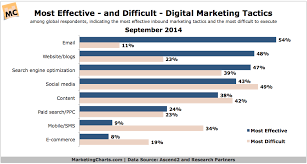The Power of Effective Online Marketing
In today’s digital age, online marketing has become a crucial tool for businesses to reach and engage with their target audience. Effective online marketing strategies can drive traffic, generate leads, and ultimately boost sales. Let’s explore the key components of successful online marketing:
Search Engine Optimization (SEO)
SEO is essential for improving your website’s visibility in search engine results. By optimising your website’s content and structure, you can increase organic traffic and attract more potential customers.
Social Media Marketing
Social media platforms offer a powerful way to connect with your audience, build brand awareness, and drive engagement. By creating compelling content and engaging with followers, you can strengthen your online presence.
Email Marketing
Email marketing remains an effective way to nurture leads and convert them into customers. Personalised email campaigns can deliver targeted messages to your audience and drive conversions.
Content Marketing
High-quality content is key to attracting and retaining customers. By creating relevant and valuable content, such as blog posts, videos, or infographics, you can establish authority in your industry and build trust with your audience.
Pay-Per-Click (PPC) Advertising
PPC advertising allows you to reach a targeted audience through paid ads on search engines and social media platforms. By carefully selecting keywords and monitoring performance, you can maximise the effectiveness of your ad campaigns.
In conclusion, effective online marketing requires a strategic approach that leverages various digital channels to connect with your audience and achieve your business goals. By incorporating SEO, social media marketing, email marketing, content marketing, and PPC advertising into your overall strategy, you can create a powerful online presence that drives results.
Five Essential Tips for Effective Online Marketing Success
- Create engaging and relevant content to attract your target audience.
- Utilize social media platforms to reach a wider audience and engage with customers.
- Optimize your website for search engines to improve visibility and attract organic traffic.
- Use email marketing campaigns to stay connected with your customers and promote new products or services.
- Monitor and analyse data regularly to measure the success of your online marketing efforts and make necessary adjustments.
Create engaging and relevant content to attract your target audience.
Creating engaging and relevant content is a fundamental tip for effective online marketing. By crafting content that resonates with your target audience’s interests and needs, you can capture their attention and establish a connection with them. Engaging content not only attracts visitors to your website or social media platforms but also encourages them to interact, share, and ultimately convert into loyal customers. Remember, quality content that adds value to your audience’s lives is key to building trust and credibility in the digital space.
Utilize social media platforms to reach a wider audience and engage with customers.
Utilising social media platforms is a valuable tip for effective online marketing. By leveraging platforms such as Facebook, Instagram, Twitter, and LinkedIn, businesses can expand their reach to a wider audience and actively engage with customers. Social media provides a direct channel for communication, allowing companies to share updates, respond to inquiries, and build relationships with their target market. Engaging content on social media can drive brand awareness, foster customer loyalty, and ultimately lead to increased sales and conversions.
Optimize your website for search engines to improve visibility and attract organic traffic.
To enhance your online presence and drive organic traffic to your website, it is essential to optimise your site for search engines. By implementing effective search engine optimisation (SEO) strategies, such as using relevant keywords, creating high-quality content, and improving site structure, you can improve your website’s visibility in search engine results pages. This not only helps attract more visitors to your site but also increases the chances of reaching your target audience and converting them into valuable leads or customers.
Use email marketing campaigns to stay connected with your customers and promote new products or services.
Utilising email marketing campaigns is a valuable strategy for maintaining a strong connection with your customer base and showcasing new products or services. By regularly engaging with your subscribers through targeted emails, you can provide them with relevant updates, special offers, and valuable information, ultimately fostering loyalty and driving conversions. Email marketing allows you to personalise your messaging and reach customers directly in their inbox, making it an effective tool for building relationships and promoting your brand effectively in the online space.
Monitor and analyse data regularly to measure the success of your online marketing efforts and make necessary adjustments.
Monitoring and analysing data regularly is a crucial tip for effective online marketing. By tracking key metrics such as website traffic, engagement rates, conversion rates, and ROI, businesses can gain valuable insights into the performance of their online marketing efforts. This data-driven approach allows companies to identify what strategies are working well and where improvements are needed. By making necessary adjustments based on data analysis, businesses can optimise their online marketing campaigns for better results and ultimately achieve their marketing objectives more effectively.



